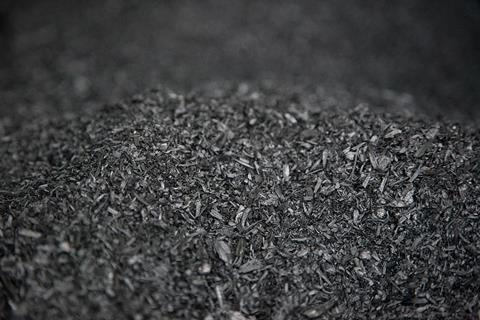A long-term field study conducted in Northeast China’s fertile black soil region has demonstrated that biochar can significantly improve soil health, stabilize microbial communities, and increase crop yields—but only when applied at the right rate.

The research, published in Biochar, reveals that a one-time application of biochar at 31.5 metric tons per hectare (t ha⁻¹) led to higher soil organic matter stability, enhanced bacterial diversity, and a 7.11% increase in crop yield. In contrast, higher doses reduced microbial stability and negatively affected soil health.
READ MORE: Fungi–biochar partnership boosts soil health and crop growth under cadmium stress
Black soils are among the world’s most productive agricultural lands, but decades of intensive farming have led to severe degradation, including organic matter loss and soil acidification. Biochar, a carbon-rich material produced from biomass pyrolysis, has shown promise in restoring soil quality, but its long-term effects on soil microbial communities and dissolved organic matter (DOM) were poorly understood.
Six-year experiment
Through a six-year experiment, researchers analyzed how different biochar application rates influenced DOM composition and soil bacteria. Using advanced fluorescence spectroscopy and DNA sequencing, they found that the medium application rate promoted the formation of stable humic substances and supported a more complex and resilient microbial network dominated by beneficial bacteria such as Proteobacteria and Acidobacteria.
“These microbes play key roles in breaking down organic matter and releasing nutrients for crops,” said Dr. Lilong Yan, one of the corresponding authors. “Biochar helps create a favorable environment for these organisms, leading to healthier soil and better yields.”
Excess is counterproductive
However, excessive biochar (47.25 t ha⁻¹) disrupted microbial balance and reduced diversity, underscoring the importance of calibrated application.
The study also used structural equation modeling to confirm that biochar indirectly boosts crop yields by altering DOM properties and enriching microbial communities.
“Our findings provide a scientific basis for optimizing biochar use in agriculture,” said Dr. Dan Wei, another senior author. “This is especially relevant for sustaining productivity in degraded soils under climate change.”
The research was supported by the National Key Research and Development Program of China and the Chinese Academy of Sciences.
Journal Reference: Hu, Y., Li, Y., Liu, K. et al. Improving the stability of black soil microbial communities through long-term application of biochar to optimize the characteristics of DOM components. Biochar 7, 84 (2025). https://doi.org/10.1007/s42773-025-00473-z







No comments yet